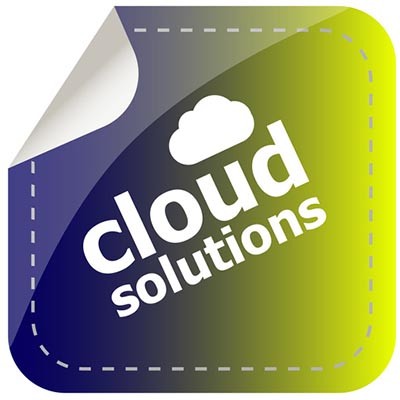Ferrum Technology Services Blog
Business hardware is never a small investment to make, so for a business to make the best use out of their invested funds, their hardware needs to be seriously considered. One way to do so is to use a virtualized environment, whether that environment is hosted onsite or in the cloud. Let’s consider the inherent benefits of virtualization.
Five months into the COVID-19 pandemic, many businesses have resolved to shift their operations and replace a lot of their onsite computing hardware with cloud solutions. While the cloud has proven to be a great method for businesses to obtain the resources they need without investing in the associated costs of a hardware refresh, its other costs could prove problematic. Let’s examine your options briefly and try to establish a sense of value.
With the development of business technology, tools have been introduced that provide greater and greater benefits to organizations that use them. Perhaps the most useful that we have today, the cloud, has enabled businesses of all sizes to take advantage of far better tools than were available to them before. Let’s take a closer look at some of them.
Collaboration has always played a critical role in a business’ success, which is one of the biggest benefits that the cloud offers. Since cloud technology has suddenly become even more important for a business--especially in terms of business connectivity as more people are displaced from the office by the COVID-19 pandemic--we felt that it was an appropriate time to address just how many different kinds of communication tools are available through the cloud.
Cloud solutions have helped considerably advance businesses, regardless of whether a business makes use of public cloud solutions or a private option that it hosts itself. Many have found great utility in combining the two into a hybrid cloud solution. Let’s consider the pros and cons of the hybrid cloud to see if it would suit your needs.
There are a lot of benefits of moving your business to the cloud. Typically, we promote the reduction in capital expenditures, the 24/7 availability, and all the other features you can gain. The cloud is a useful tool for all types of business computing functions. Today, large sections are moving their business to the cloud, but is it really right for you? Let’s look at how cloud computing can potentially be detrimental for your business.
Most businesses make technology decisions with an eye on growth. One technology that is being used more than ever is cloud computing. There are many different benefits that an organization can see by using the cloud. Today, we will address these benefits and explain how cloud computing works to facilitate business growth.
Cloud computing is the single fastest growing business computing method. Why is this? The cloud offers options that simply weren’t available in the past. Switching to the cloud not only can benefit your business productivity, but also your security, flexibility, and efficiency. Today, we will talk about how migrating to the cloud can help YOUR business.
Many businesses have turned to the cloud for their next big technology rollout, but there’s much more that goes into this choice than giving the green light to whoever is implementing it. First, you’ll need to make a choice; do you implement a public cloud, private cloud, or a combination of the two?
The story of Microsoft 365 unofficially starts with millions of individuals that still use workstations that run Windows 7. Microsoft had to come up with a plan to get the millions of people that didn’t upgrade to Windows 10 onto the platform before they retired Windows 7. What better way to accomplish that than making it easier than ever to upgrade?
Businesses of all industries and sizes utilize the cloud to various extents, generally to satisfy a specific need. One example of how much variance there is in cloud solutions is in how much control organizations need over theirs. A public cloud is great for some organizations that need limited control over their solutions, but a private cloud offers more dynamic control and options.
For this week’s tip, we thought we’d talk about something that most businesses have already dabbled in: the cloud. If your business is like those that we interact with, you’ve already implemented some type of cloud service, but if you haven’t, you should know just how cloud-hosted services can benefit the small business. We’ll look at the benefits of cloud-hosted services and how to pick which services are right for you.
The cloud is one of the best ways providers can make their services accessible, but not all businesses have the same needs. Some might host their cloud-based services on-site, while others might outsource the management to a third-party organization. Hosted VoIP is one of the most common ways businesses utilize the cloud, but what makes it better than the traditional on-site method of hosting? Let’s dig in.
The latest technology can help businesses compete with even large organizations if it’s implemented properly. The cloud is one of these tools that helps new businesses take advantage of goods and services previously inaccessible to those with limited budgets and in-house assets. In fact, the cloud is one of the few solutions your organization can implement that actually grow alongside your business.
The Internet is incredibly important to the success of not only businesses, but countless users all over the world. In terms of the actual strength of the Internet though, people might not know just how many options there are out there that can provide access to this dynamic and feature-filled network. Thanks to the Internet, businesses all over the world have access to plenty of great services that enable them to accomplish as much as possible.
The most productive people are the ones that have the information they need on hand. If you are one of the millions of people that don’t have access to a team of researchers, it will likely fall on you to do most of the research you need yourself. While you may only sparsely use Evernote, today the powerful note-taking app offers pre-made templates to help you get more organized.
In today’s medical field, technology is a big player. With regulations dictating that even independent practices attempt to make the jump to a dedicated EMR/EHR. An EMR/EHR, or electronic medical record/electronic health record interface, provides physicians and patients a way to connect to promote efficient healthcare delivery and organizational profitability. Today, we will look at how smaller healthcare providers are utilizing EMR/EHR solutions that are hosted in the cloud, bucking the trend of hosting their patient information locally.
Businesses of all types have looked to the cloud as a way to receive the goods and services they could use to improve their ability to create revenue, while not having to lay out huge chunks of capital in which to get the dynamic computing infrastructure. Today, developers are creating useful cloud-based applications that not only provide growing businesses the resources they need, they increasingly give workers flexibility, through their inherent accessibility. Today, we will take a look at five cloud-based applications that can really benefit a small business.




















